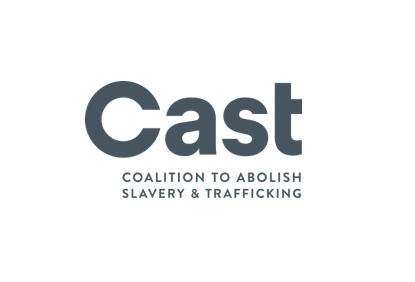(SACRAMENTO, CA) – Today, the Coalition to Abolish Slavery & Trafficking (Cast) announced the introduction of a first-of-its-kind legislative package that will strengthen California’s efforts to support survivors of human trafficking, hold offenders accountable, and prevent trafficking from the start.
The package, created by survivors for survivors, consists of budget funding championed by Assemblymember Santiago (D-Los Angeles) to fund urgent emergency services for survivors; SB 376 by Senator Rubio (D-Baldwin Park) to establish a multi-county prevalence study on human trafficking; AB 235 by Assemblymember Rubio (D-Baldwin Park) to enhance the Labor Commissioner’s ability to enforce labor trafficking laws; and AB 1149 by Assemblymember Grayson (D-Concord) to create the California Multi-Disciplinary Alliance to Stop Trafficking (CA MAST).
“California is home to some of the largest hubs for sex and labor trafficking in the United States, and it is time our state takes the necessary steps to better support and uplift survivors,” said Kay Buck, CEO of Cast. “We’re excited to work with our legislative champions on a first-of-its-kind package that will provide the framework we need to create a future where we serve every survivor and abolish human trafficking all together.”
Human trafficking is the exploitation of human beings through force, fraud, or coercion for the purposes of commercial sex or forced labor. It is estimated to be a $150 billion a year global industry, and California currently has one of the highest human trafficking rates in the nation. The pandemic saw a significant rise in calls for urgent trafficking cases, leading to overburdened service providers. Cast alone experienced a 556% increase in emergency response calls between 2019 and 2021.
Human trafficking survivors have overcome tremendous mental and physical obstacles, conquering their forced exploitation and abuse. Without government assistance, assimilating back into society is incredibly difficult. Many are forced back into trafficking situations due to financial distress, lack of shelter, limited access to healthcare and childcare needs, and poor employment prospects. Strengthening state and local efforts to address the root causes that make individuals, families, and communities at risk of trafficking will bring much-needed coordination to anti-trafficking efforts statewide.
“Like many survivors, I spent so long thinking about escaping but I did not have anywhere to go for help if I left. I eventually went to the Santa Monica police department. They provided me no help and treated me like a criminal and a menace—as if I were trafficked by choice. I didn’t know rock bottom had a basement until I realized I was being trafficked,” said Lynelle*, a human trafficking survivor. “Unfortunately, my story isn’t unique. This legislative package is critical to effectively addressing human trafficking in our state and supporting survivors who have been silenced and underserved for far too long.”
Governor Newsom can make California the global leader in addressing human trafficking by supporting these innovative programs designed to advance survivor protections and minimize the risks of being re-trafficked. By enacting policies that educate first responders, healthcare institutions, and lawyers on identifying potential survivors, California can combat trafficking rates and keep the state a safe space for those affected to seek aid.
*Name changed to protect privacy.
About the Coalition to Abolish Slavery and Trafficking
The Coalition to Abolish Slavery and Trafficking (Cast) is a Los Angeles–based nonprofit organization working to put an end to human trafficking through comprehensive, life-transforming services to survivors and a platform to advocate for groundbreaking policies and legislation. To find out more, visit www.castla.org or follow Cast on Twitter and Facebook.
